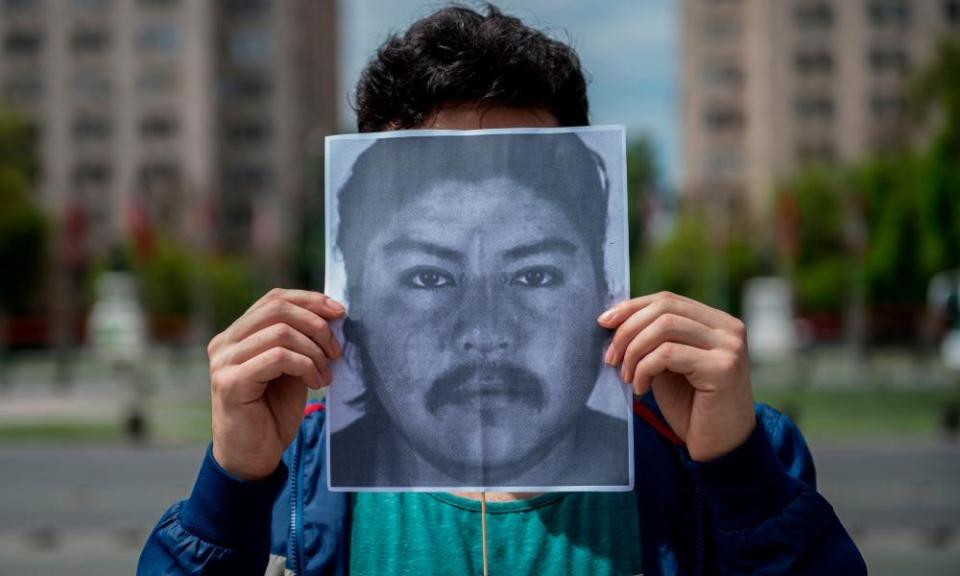Chile: four police officers arrested over fatal shooting of indigenous man
Public fury over the death of Camilo Catrillanca, the grandson of a prominent Mapuche leader, has led to massive protests

Four former police officers in Chile have been arrested over the fatal shooting of an young indigenous man in the restive southern region of Araucanía, as anger over the incident and subsequent cover-up threatens to spiral out of President Sebastián Piñera’s control.
Public fury over the killing of Camilo Catrillanca, the 24-year-old grandson of a prominent Mapuche indigenous leader, has led to massive street protests and shone a spotlight on Chile’s treatment of the country’s largest indigenous group.
The case has also prompted calls for Piñera to disband the “Jungle Commandos”, a heavily armed tactical unit of the national police force, known as the Carabineros.
Catrillanca was shot in the back of the head on 14 November as he drove his tractor away from a Jungle Commando unit which was pursuing car thieves in Temucuicui, a small community 600km south of the capital, Santiago.
A 15-year-old boy who was also on the tractor was detained and beaten after the incident. The youth also said that the officer who fired the fatal shot replaced the memory card in his helmet camera – contradicting officers’ initial testimonies that there was no video of the shooting.
The officer later admitted destroying the memory card – although the national police director, Hermes Soto, said he had done so because it contained compromising images of the officer and his wife.
The four former officers – who were removed from the police after the incident – are due to appear in court on Friday, on allegations that include obstruction of justice and homicide.
“The investigation is bearing fruit and our government will continue to seek truth to ensure that justice is served in the case of the death of this indigenous man,” said theinterior minister, Andrés Chadwick.
Chadwick has become a focus for much of the anger over the case, and in demonstrations across the country, protesters have called for his resignation.
“This would send a clear message to the political class: they cannot go on killing our brothers and sisters,” said student activist Amandaluna Cea, who helped coordinate protests in Santiago.
Piñera took office in March, promising to bring peace to Araucanía – Chile’s poorest region – with an eight-year plan to promote the local economy and toughen security measures.
The Mapuche have long accused the state and private companies of taking their ancestral lands for forestry and other industries, draining its natural resources and using indiscriminate violence against them.
When Chadwick appeared before a congressional human rights commission hearing over Catrillanca’s death, he said that the region had seen 920 arson attacks, 924 armed confrontations and 509 attacks on police since 2013.
Mapuche leaders say the blame lies with the police, who are often accused of heavy-handed tactics and intimidation. Tensions rose in June, when Piñera deployed the Jungle Commandos to the region, equipped with tanks, helicopters and armoured cars.
Jorge Huenchullán, a Mapuche leader in Temucuicui, said: “The police presence in our region has been increasing steadily, but the Jungle Commandos brought new technology such as drones and amphibious vehicles to our home.
“The Mapuche want to be recognised as a people with territorial and political rights, not just folkloric value: we are not the property of the state, as we have been here since long before Chile was even conceived,” he said.

